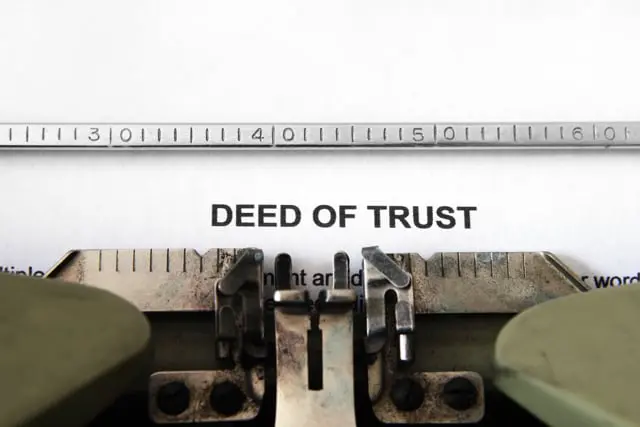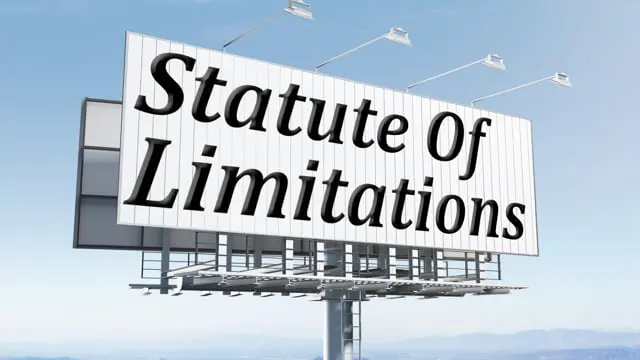Filing for quiebra can be a daunting and complex process, but with proper legal advice, you can navigate it effectively and secure a fresh financial start. Understanding the steps involved and the legal implications is crucial for anyone considering bankruptcy. This comprehensive guide will provide detailed information on how to file for bankruptcy with proper legal advice, covering every aspect to ensure you are well-informed and prepared.
Understanding Bankruptcy and Its Implications
Quiebra is a legal process that allows individuals or businesses to eliminate or repay their debts under the protection of the bankruptcy court. There are different types of bankruptcy, each with its own procedures and requirements. The most common types for individuals are Chapter 7 and Chapter 13 bankruptcy.
Quiebra del Capítulo 7
Quiebra del capítulo 7, also known as liquidation bankruptcy, involves selling the debtor’s non-exempt assets to pay off creditors. It is designed for individuals with limited income who cannot repay their debts. Proper legal advice is essential to determine if Chapter 7 is the right option for you and to navigate the means test, which assesses your eligibility based on your income and expenses.
Quiebra del Capítulo 13
Quiebra del capítulo 13, also known as reorganization bankruptcy, allows individuals to keep their property and repay their debts over three to five years through a court-approved repayment plan. This type of bankruptcy is suitable for individuals with a regular income who can afford to make monthly payments. Legal guidance is crucial to create a feasible repayment plan and ensure compliance with the court’s requirements.
The Importance of Proper Legal Advice
Seeking proper asesoramiento jurídico is crucial when filing for bankruptcy. A qualified bankruptcy lawyer can help you understand your options, protect your rights, and guide you through the complex legal process. They can also help you gather the necessary documentation, complete the required forms, and represent you in court.
Finding the Right Bankruptcy Lawyer
Finding the right bankruptcy lawyer is a critical step in the process. Look for a lawyer with experience in bankruptcy law, a good reputation, and positive client reviews. You can start by asking for recommendations from friends or family, searching online directories, or contacting your local bar association.
Initial Consultation with a Bankruptcy Lawyer
During the initial consultation, your lawyer will assess your financial situation, explain your options, and recommend the best course of action. Be prepared to provide detailed information about your debts, assets, income, and expenses. This will help your lawyer determine whether bankruptcy is the right solution for you and, if so, which type of bankruptcy to file.
Prepararse para declararse en quiebra
Once you decide to file for bankruptcy, your lawyer will help you prepare by gathering the necessary documentation and completing the required forms. This includes:
- A list of all your debts, including credit cards, medical bills, personal loans, and mortgages.
- A list of all your assets, including property, vehicles, bank accounts, and investments.
- A detailed account of your income and expenses.
- Recent tax returns and pay stubs.
- Information about any recent financial transactions, such as large purchases or transfers of property.
Presentación de la solicitud de quiebra
After gathering the necessary documentation, your abogado will prepare and file the bankruptcy petition with the bankruptcy court. The petition includes detailed information about your financial situation, including your debts, assets, income, and expenses. Once the petition is filed, an automatic stay goes into effect, which temporarily halts most collection actions against you, including lawsuits, wage garnishments, and creditor calls.
Attending the Meeting of Creditors
Shortly after filing your bankruptcy petition, you will be required to attend a meeting of creditors, also known as a 341 meeting. This meeting is conducted by the bankruptcy trustee and allows creditors to ask questions about your financial situation and the information provided in your bankruptcy petition. Your lawyer will prepare you for this meeting and represent you during the proceedings.
Developing a Repayment Plan (Chapter 13 Only)
If you are filing for Chapter 13 bankruptcy, you will need to develop a repayment plan that outlines how you will repay your debts over the next three to five years. Your lawyer will help you create a feasible plan that meets the court’s requirements and is based on your income and expenses. The plan must be approved by the bankruptcy court and the bankruptcy trustee.
Completar el proceso de quiebra
Once your bankruptcy petition is filed and the necessary steps are completed, the bankruptcy court will issue a discharge order, which officially eliminates your dischargeable debts. This order provides you with a fresh financial start and relief from your financial burdens. Your lawyer will ensure that all requirements are met and that you receive your discharge as quickly and efficiently as possible.
La vida después de la quiebra
Filing for bankruptcy can provide significant relief from overwhelming debt, but it also has long-term implications for your financial future. It’s important to take steps to rebuild your credit and manage your finances responsibly after bankruptcy. Here are some tips to help you get back on track:
Reconstruir su crédito
One of the most important steps after bankruptcy is rebuilding your credit. Start by obtaining a copy of your credit report and checking it for errors. Dispute any inaccuracies with the credit bureaus to ensure your report is accurate. Next, consider applying for a secured credit card or a small loan to start rebuilding your credit history. Make sure to make all payments on time and keep your balances low to demonstrate responsible credit use.
Creating a Budget
Creating a budget is essential for managing your finances after bankruptcy. Track your income and expenses to identify areas where you can cut costs and save money. Set financial goals and create a plan to achieve them. A budget will help you stay on track and avoid falling back into debt.
Seeking Financial Counseling
Consider seeking financial counseling to help you manage your finances and make informed decisions. A financial counselor can provide valuable advice on budgeting, saving, and rebuilding your credit. They can also help you develop a plan to achieve your financial goals and avoid future financial problems.
Evitar errores comunes
After bankruptcy, it’s important to avoid common financial pitfalls that can lead to further debt problems. Avoid taking on new debt unless absolutely necessary, and be cautious about co-signing loans or credit cards for others. Make sure to read the fine print on any financial agreements and understand the terms and conditions before signing.
Staying Informed About Your Rights
Understanding your rights and responsibilities after bankruptcy is crucial for maintaining your financial health. Stay informed about changes in bankruptcy laws and regulations, and seek legal advice if you have any questions or concerns. Your bankruptcy lawyer can provide ongoing support and guidance to help you navigate your financial future.
Trending Topics in Bankruptcy Law
Staying informed about trending topics in bankruptcy law can help you make better decisions and stay ahead of potential issues. Some current trends include:
Changes in Bankruptcy Legislation
Bankruptcy laws and regulations are constantly evolving. Stay informed about recent changes in bankruptcy legislation that may impact your case. Your lawyer can provide updates and explain how these changes may affect your options and rights.
Impact of the COVID-19 Pandemic
The COVID-19 pandemic has had a significant impact on bankruptcy filings and financial health. Many individuals and businesses have faced financial hardships due to job losses, business closures, and medical expenses. Understanding how the pandemic has affected bankruptcy law and the options available to you is crucial for making informed decisions.
Student Loan Debt and Bankruptcy
Student loan debt is a major issue for many individuals considering bankruptcy. While student loans are generally not dischargeable in bankruptcy, there are certain circumstances where they may be discharged. Stay informed about recent developments and court cases related to student loan debt and bankruptcy.
Bankruptcy Alternatives
Exploring alternatives to bankruptcy can help you make the best decision for your financial situation. Some alternatives include:
Debt Consolidation
Debt consolidation involves combining multiple debts into a single loan with a lower interest rate. This can make it easier to manage your payments and reduce your overall debt. However, it’s important to understand the terms and conditions of the consolidation loan and ensure it’s a viable option for your financial situation.
Liquidación de deudas
Debt settlement involves negotiating with creditors to reduce the total amount of debt you owe. This can be a good option for individuals who have a lump sum of money available to pay off their debts. However, debt settlement can have a negative impact on your credit score and may not be the best option for everyone.
Asesoramiento crediticio
Credit counseling involves working with a certified credit counselor to develop a plan to repay your debts. This can include creating a budget, negotiating with creditors, and setting up a debt management plan. Credit counseling can provide valuable support and guidance for managing your finances and avoiding bankruptcy.
Understanding the Long-Term Effects of Bankruptcy
Filing for bankruptcy can have long-term effects on your financial health and credit score. It’s important to understand these effects and take steps to mitigate them.
Impacto en la puntuación de crédito
Bankruptcy can have a significant negative impact on your credit score, making it more difficult to obtain credit in the future. However, with responsible financial management and time, you can rebuild your credit and improve your score.
Access to Credit
After bankruptcy, you may find it more difficult to obtain credit or loans. Lenders may view you as a higher risk and charge higher interest rates or require collateral. However, by demonstrating responsible credit use and building a positive credit history, you can improve your chances of obtaining credit in the future.
Employment and Housing
Bankruptcy can also impact your ability to obtain employment or housing. Some employers and landlords may view bankruptcy as a negative mark on your financial history. However, many people successfully find employment and housing after bankruptcy by demonstrating financial responsibility and providing explanations for their financial situation.
Planning for the Future
Planning for your financial future is essential after bankruptcy. Set financial goals and create a plan to achieve them. This can include saving for emergencies, retirement, and major expenses. By planning ahead and making informed decisions, you can build a secure financial future.
The Role of Bankruptcy Trustees
Bankruptcy trustees play a crucial role in the bankruptcy process. They are responsible for overseeing the administration of your bankruptcy case, including reviewing your financial information, conducting the meeting of creditors, and distributing payments to creditors. Understanding the role of the trustee and cooperating with their requests is essential for a smooth bankruptcy process.
Bankruptcy Discharge and Rebuilding
Once your bankruptcy is discharged, you can begin the process of rebuilding your financial life. This includes reestablishing credit, managing your finances responsibly, and planning for your future. By taking proactive steps and seeking proper legal advice, you can achieve a fresh financial start and secure a brighter future.
Conclusión
Filing for bankruptcy with proper legal advice is a complex but manageable process. By understanding the steps involved, seeking qualified legal guidance, and taking proactive steps to rebuild your financial health, you can navigate the bankruptcy process successfully and achieve a fresh financial start. Stay informed about changes in bankruptcy laws, explore alternatives to bankruptcy, and plan for your financial future to ensure long-term financial stability.








